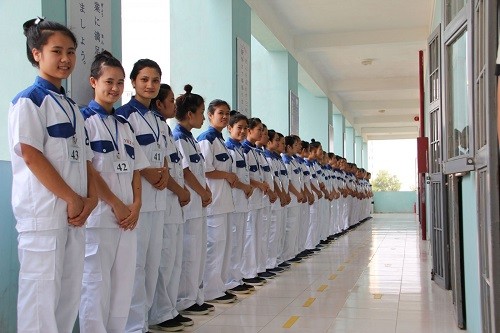(VOVworld) - Vietnam needs skilled workers in many sectors to maintain economic growth. International cooperation in training is the best way to ensure a qualified labor force.
 |
| Vietnam sends nurses to Japan (Illustrative photo) |
Of 15 countries sending trainees to Japan, Vietnam is the second biggest contributor, just behind China. President of the Japan International Training Cooperation Organization (JITCO), Kazuhiro Suzuki, said the number of Vietnamese trainees in Japan increased from 10,000 in 2013 to 40,000 in 2016. They work in electronics, mechanics, garments and textiles, seafood processing, construction, shipbuilding, and nursing.
Japan’s 2016 Law on Intern Training for Foreigners generated opportunities for Vietnamese workers to sign 5-year contracts instead of 3-year contracts and receive more benefits.
Mr. Suzuki said: “Vietnam has sent large number of intern-workers to Japan. We’ll inform Vietnam of the latest policy adjustments and offer consultations to obtain the best training cooperation result.”
Vietnam has seen huge labor shifts from agriculture to other sectors. The government needs to help these workers train to take new jobs. The Asian Development Bank (ADB) has committed to help Vietnam implement the Skills and Knowledge for Inclusive Economic Growth Program. ADB Vietnam representative Sakiko Tanaka said that ADB has been working with MOLISA and other Vietnamese partners. The program will be a good model of collaboration between the Vietnamese government, MOLISA, and some investment components to be led by some vocational training businesses.
International cooperation in vocational training is the key to building a high-quality labor force which helps improve Vietnam’s competitiveness in the international labor market.